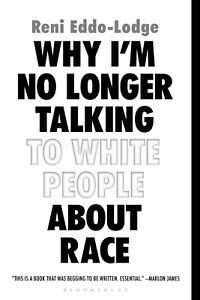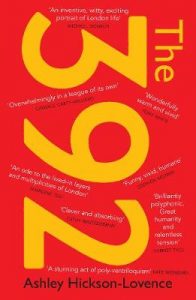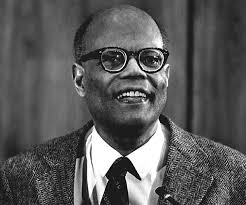Four contributors share artefacts that have influenced their thinking and understanding of Black history and culture
Why I’m no longer talking to white people about race
Reni Eddo-Lodge
After moving to Northampton in 2019, I joined an anti-racist book club focusing on Black, Asian, Minority Ethnic (BAME) authors. The first book on our list was Why I’m no longer talking to white people about race by the Black author, Reni Eddo-Lodge. This former top-listed Sunday Times bestseller was first published in Great Britain in 2017, but following the Black Lives Matter movement, the book resurfaced sparking a national conversation on the experience of Black people in Britain. Exploring a number of Black history issues which had been eradicated from the school curriculum, the book made an inextricable link between class and race. The book took me on the physical journey of the origins of Black people in Britain; from the slave trade and the eventual abolition of slavery in Britain in 1833, to the current experiences facing Black people in the UK. Eddo-Lodge spotlights the abuse of police powers – with the increasing numbers of stop and search, the racial profiling of Black people as criminals in the media, and our disproportionate representation within the prison population.
I saw this publication as a wake-up call to a nation in denial, an eye-opening, honest, opinionated, and challenging account of the reality of life as a person of colour in Britain. It also changed the narrative around race in UK, and is an essential handbook for anyone who is interested in Black history, the complexity of the issues in today’s society, and for those who would like to better understand race relations in the United Kingdom.
Dr. Patrice Seuwou is a senior lecturer and programme leader at the University of Northampton. Alongside his specialism in digital technology, he is also currently exploring the experiences of BAME students in higher education through the lens of critical race theory and Pierre Bourdieu’s concept of capital.
Question time
Dave
In November 2018, I taught a first -year BA Sociology class at a teaching intensive university in London. As part of the course, I asked students to bring to class a poem, article, podcast, book, or song that they felt I should be using as part of the course. The previous week, as a class we had been discussing the importance of voice and whose voices are listened to, heard, and amplified, and this would be a good way to put it into practice.
A student brought the rap song, Question time by Dave to class. Dave provides a breakdown of everything wrong with British politics in this seven-minute rap. The module I was teaching was focussed on contemporary society and politics. This rap posed every question and more that students should be asking. I have since used this rap in my teaching: I use it to encourage all students to always ask questions and seek answers, but I also use this song to send the message that not all knowledges come from the canon.
In higher education, we speak often about decolonising as something that needs to be done to a reading list. For me, it is about asking and listening to all our students. In the UK, we celebrate Black History Month every October, but what about teaching Black history all year and every year?
Dr. Akile Ahmet is the Academic Developer for Inclusive Education at the Eden Centre for Education Enhancement at the LSE. She is a member of RACE of the Royal Geographic Society with IBG.
The 392
Ashley Hickson-Lovence
I recommend Ashley Hickson-Lovence’s debut novel, The 392. It takes place on a bus in London traveling to Highbury over the course of just over 30 minutes. The book jumps from character to character going about their lives and offers a reflection the realities and turmoil of contemporary Britain. It explores themes that grip the city from terrorism and homelessness to grime and football, as seen by this diverse swath of everyday Londoners. And you have to read it until the very end (no spoilers).
The political critique is powerful, and it is written in a way that allows you to get lost in the thoughts of each character. Put simply, Hickson-Lovence tells the story of London as only a born-and-raised Londoner can.
Dr. Sara Camacho Felix is Assistant Professorial Lecturer for the Atlantic Fellows in Social and Economic Equity programme at the International Inequalities Institute, LSE. She is a practitioner-researcher whose praxis focuses on equitable and reflexive pedagogies in higher education. Sara is also a member of LSE’s Decolonising Collective
Black excellence – Sir Arthur Lewis and his enduring legacy
Shey Forbes-Taylor and Brian Walker
Sir Arthur Lewis was a thinker and doer whose research legacy in development economics continues to shape the world in various ways. October 2019 marked the 40th anniversary of his Nobel Prize win. Shey Forbes-Taylor, my former colleague, and I felt compelled to produce a short film to reflect on the highs and lows of his LSE journey as a student and the School’s first Black academic alongside the sustained impact of his work. The aim was to tell the story in an accessible, critical, and impactful way.
It was thrilling and humbling to win the Short Film and Festival awards in the LSE Festival Research Competition earlier this year. More importantly, I’m happy that the film has prompted a relevant conversation on how LSE can honour Sir Arthur’s legacy in a more meaningful and tangible way.
Brian Walker is a Jamaica-based public affairs strategist who works in international development. He graduated from LSE in 2019 with an MSc in Social and Public Communication (Distinction).
_________________________________________________________________________________________________________________
Disclaimer: This post is opinion-based and does not reflect the views of the London School of Economics and Political Science or any of its constituent departments and divisions.
_________________________________________________________________________________________________________________
Image credit: YouTube







